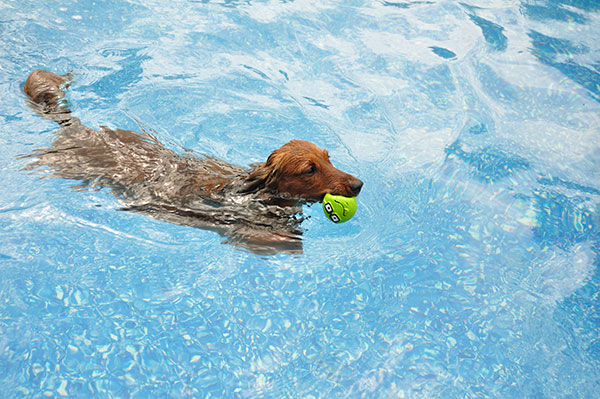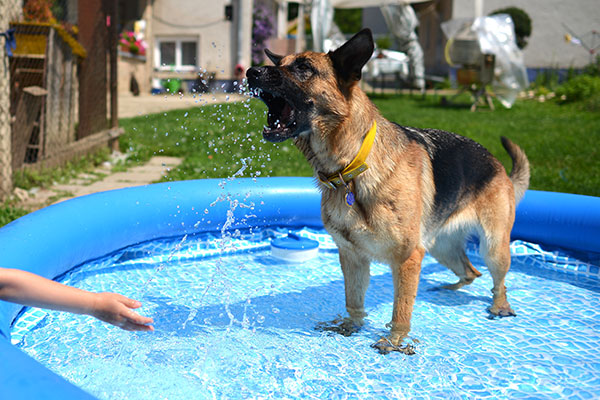Dogs are like family, so it’s common to see four-legged friends splashing and swimming with their humans on a hot summer’s day. But should you let your dog swim in your pool?
It’s a more significant consideration than you might think.
There’s no doubt most dogs love to swim (and they’re quite good at it!), but preferences aside, there are some bigger concerns you should address first:
Water Safety
Contrary to popular belief, not all dogs naturally know how to swim. Puppies and older dogs might not have the muscle strength to stay afloat on their own, which puts them at risk of drowning. The same goes for breeds with short noses and legs, such as bulldogs, dachshunds, and pugs.
There’s also the risk of your dog not feeling comfortable in the water and panicking to get out. This may cause your dog to take in chlorinated pool water or salt water (neither of which is advisable) or cause injury to others. There’s also a certain level of risk if you don’t have easy-to-access stairs to get out of the pool.
Ideally, you will work with your dog to get them used to the water and comfortable swimming before allowing them to swim with others. This can take some time, so don’t try to rush the process.
Pool Maintenance
Dogs can cause extra wear and tear on your pool, resulting in large expenses you might not be prepared for. For starters, one dog is equal to several people in the pool (up to 25-50 people in some studies). Also, their toenails could easily puncture a hole in your pool’s vinyl liner, which could set you back thousands of dollars in liner replacement, installation, and water. A cement-lined or fiberglass-lined pool is more dog-friendly and isn’t at risk of damage from their nails.
If you have pool toys, such as foam noodles or plastic pool floats, your dog may also try to join in the fun. But these items aren’t made for dogs and are best kept away from your canine companions, so they don’t risk ingesting any plastic foam.
There’s also the risk of dog hair clogging up your filtration system. Dogs will shed fur while they’re swimming, which will end up in your skimmer and pool filter. Dog hair is finer and harder to manage than leaves or other debris and could cause problems more quickly.
Bottom Line: Should I Let My Dog Swim in My Pool?
Swimming provides a ton of benefits to your dog, particularly in keeping them active and healthy. Plus, a dip in the water is a great way to chase away the heat during the dog days of summer.
A better alternative to your pool is a small kiddie pool they can call their own. They’re deep enough to cool them down, yet shallow enough for even small dogs to enjoy without the risk of drowning.
Of course, the choice is ultimately up to the pool owner (you), but at least you can make an informed decision for your dog — and your pool investment.
Want more pool care tips? Head back to our blog.





